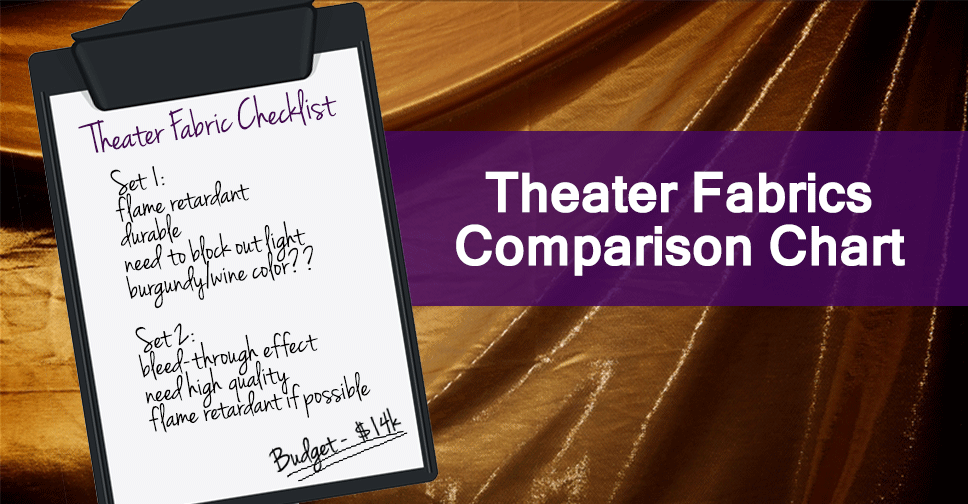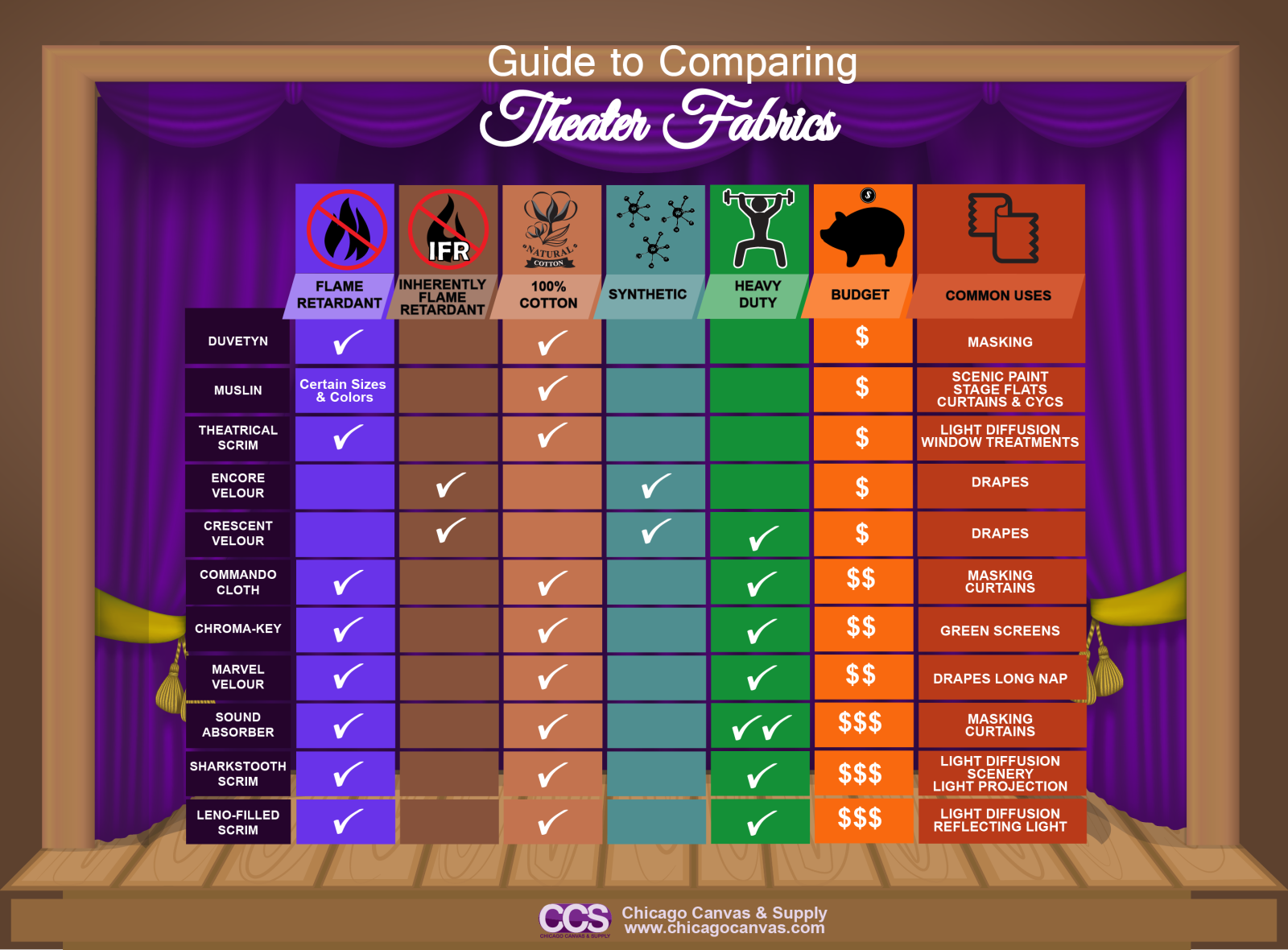Guide to Selecting the Ideal Fabric Type for your Theater Curtains
Let me set the stage for you. Big production coming up and your job is to buy the fabric to make theater curtains. You are clicking from site to site, trying to figure out which fabric is going to be best-suited. So many choices! There is also a budget to stay within. Isn’t it also always the case that these were needed yesterday? Ya’ know… just to keep it interesting. Let us save you some time with a simple chart comparing theater fabrics so the next time you are in need of fabrics for your stage curtains, you will know exactly what to order.
Decision 1: Flame Retardant or Inherently Flame Retardant Fabric?
Flame Retardant materials are created by the application of flame retardant chemicals. During a fire, chemically dependent fabrics rely on a chemical reaction to extinguish the flame. The reaction is triggered by the heat of the fire and the amount of time the fabric is exposed to the fire. Flame retardant chemicals will be removed by water washing and expected lifetime is approximately 1 year. Humidity and airborne dust and oils can also diminish the endurance and effectiveness of the flame retardant chemical.
Inherently Flame Retardant materials have flame retardants built into the chemical structure. By the protection being built into into the fiber itself, the flame retardant will not wear away or wash.
Decision 2: Cotton or Synthetic Theater Curtains?
There are many benefits of using cotton fabric for theater curtains. Mainly, it breathes, resists static, withstands high heat, and stain-resistant. However, cotton is not wrinkle-resistant, it tends to fade in the sunlight. It can also shrink and stretch.
Decision 3: Heavy Weight vs. Medium vs. Light
Consider how the fabric will be cared for over time and how frequent the use will be. It may be advisable to get a heavier weight cotton or synthetic fabric for your theater curtains.
Decision 4: Budget
Yep, how much money is in that piggy bank? We offer a variety of different fabric types to accommodate all budget types. Keep in mind that typically the less expensive the fabric is, the less the quality will be. This may be fine for your production, but keep longevity in mind and compare prices on a higher quality fabric that will provide a longer life and richer appearance, such as sharkstooth scrim or memorable velour.
Decision 5: Common Stage Fabric Uses
Theater Fabrics are definitely diverse, and while there is latitude for being creative, certain fabrics are best suited for a job. For instance, scrims are best for reveals and light diffusion situations. However, don’t feel like you can’t use your fabric for something that isn’t appearing on the chart. This is just to give you an idea of some typical uses. You can always give us a call or contact us online. We love opportunities to consult and make sure you have the best fabric for your use.
Do you know which theater fabric you need now? We have many ftheater curtain fabrics in stock and ready to ship in a wide variety of colors.
Not sure on some of the Theater Fabric terminology? That’s okay. Check out our “GG Knows – A Dictionary of Textile Terms” blog post. We are always adding new terms.







I thought it was really interesting how you described how cotton resists static and is stain-resistant, yet is not wrinkle resistant and fades in the sunlight. If I were a theater director, I would want a curtain for my show that was aesthetically pleasing, but also viable for the performance. I would have to consult a professional to decide if I wanted cotton or synthetic theater curtains.
It may depend on the budget but I’ll choose an affordable school stage curtain that my local school can afford that I’m assigned to buy. I might choose a cotton curtain since you mentioned that it’s stain-resistant which the school will need. I’ll consider buying heavy weight fabrics to make sure that they last a long time but I’ll see what I can find.